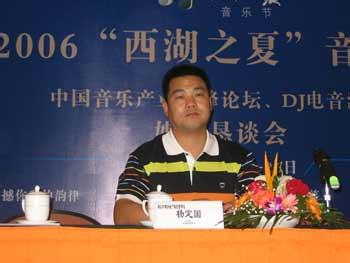China’s real estate industry and the shadow banking network that it relies on received a collective black eye this week when a Hangzhou developer first defaulted on loan payments, and was later arrested on fraud allegations surrounding RMB 2 billion in debts.
Today, the official Securities News reported that, according to Hangzhou government sources, the chairman of Zhongdou Group, a Hangzhou-based real estate developer has been arrested after failing to repay an entrusted loan earlier this month. Yang Dingguo who owns Zhongdou Group had been missing since June 14th after the bank which handled the entrusted loan had initiated legal action against him and his companies.
The company that had made the entrusted loan, China Ting Group Holdings Ltd. (3398) said in a statement to the Hong Kong stock exchange (where it is listed) that Zhongdou Group Holdings and its sister company, Hangzhou Zhongdou Shopping Centre had failed to make interest payments on RMB 160 million yuan ($26 million) borrowed from the Zhejiang-based silk exporter.
The RMB 160 million ($26 million) in unsecured loans to the Zhejiang real estate firm were made through Ningbo Bank Corp and China’s Bank of Communications. Entrusted loans grew by 21 percent last year in China during as the country’s credit-starved real estate sector scrambled for financing after the government clamped down on lending to the sector.
Zhongdou Faking Sales Reports
The Securities News reported that serious irregularities have been found in recent sales reports filed by a Zhongdou Group company developing a high-end real estate project on Hangzhou’s Qingshan Lake. The sales reports were said to show single day revenues for the project reaching as much as RMB 72.8 million from the sales of 35 units. With single day sales in Hangzhou only amounting to 179 units in a day, the Zhongdou figures would mean that the company’s project accounted for nearly 20 percent of total sales across the city.
Interviews with company staff cited in the Securities News report also indicated discrepancies between sales pricing listed on company reports and prices customers were paying.
Before disappearing earlier this month, Yang and members of his family were reportedly recorded on security videos removing eight boxes from Zhongdou company offices. Indications are that Yang Dingguo and Zhongdou Group were using fraudulent sales reports in order to secure financing from Ting Group and other creditors.
Yang, who is a prominent entrepreneur in Hangzhou controlled more than 20 companies through Zhongdou Group. Despite the, or perhaps because, the group’s success, its total assets are said in local press reports to total only RMB 1 billion, while its credit obligations amount to RMB 2 billion.
The garment maker has indicated that Ningbo Bank is already pursuing the pair of Zhongdou companies through the courts, and Bank of Communications may soon follow suit.
More Cracks Showing in China Shadow Banking
The Zhongdou defaults are the second significant case of a shadow banking failure within China’s property industry in the last two months. During April a Nanjing developer similarly was unable to make good on payments on a RMB 105.4 million (US$16.9 million) entrusted loan it received from a shipbuilder.
Lending from the shadow banking industry to property developers has become more common in China as the government has tightened credit to the sector in an effort to discourage over-investment and reduce the risks of a real estate bubble.
These unsecured loans can be arranged through banks, but are not backed by the bank’s balance sheet, and have become a popular way to funnel credit from state-run companies where credit is still available, to traditionally more profitable real estate firms. Chinese companies loaned each other RMB 2.55 trillion in what are called entrusted loans in 2013, a 21 percent rise from the previous year.
Zhejiang Real Estate Continues to Be Failure Central
China Ting, Ningbo Bank Corp and Zhongdou are all based in Zhejiang, a wealthy province in eastern China which has seen property prices in cities such as Hangzhou outstrip even more-developed Shanghai in recent years.
As the market has turned in 2014, however, the once-booming province has become the centre of the country’s real estate crisis. In March a developer in Ningbo collapsed under the weight of RMB 3.5 billion (US$561 million) in debts, and properties prices in the entrepreneurial city of Wenzhou have now been sliding for more than two years.
Hangzhou was also home base for luxury developer Greentown, whose owners recently sold off their controlling stake in the company to Tianjin-based Sunac after having over-invested in high-end residential projects in Zhejiang.
Yang’s arrest, and his company’s inability to make payment on its obligations, indicate that the level of distress in Zhejiang’s property market may be continuing to rise.

[…] China Developer Arrested After Defaulting Amid Fraud Reports | Mingtiandi Today, the official Securities News reported that, according to Hangzhou government sources, the chairman of Zhongdou Group, a Hangzhou-based real estate developer has been arrested after failing to repay an entrusted loan earlier this month. Yang Dingguo who owns Zhongdou Group had been missing since June 14th after the bank which handled the entrusted loan had initiated legal action against him and his companies. […]